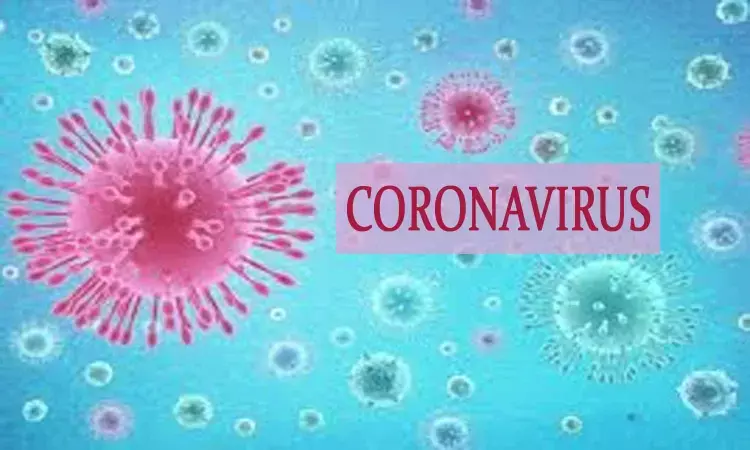- Home
- Medical news & Guidelines
- Anesthesiology
- Cardiology and CTVS
- Critical Care
- Dentistry
- Dermatology
- Diabetes and Endocrinology
- ENT
- Gastroenterology
- Medicine
- Nephrology
- Neurology
- Obstretics-Gynaecology
- Oncology
- Ophthalmology
- Orthopaedics
- Pediatrics-Neonatology
- Psychiatry
- Pulmonology
- Radiology
- Surgery
- Urology
- Laboratory Medicine
- Diet
- Nursing
- Paramedical
- Physiotherapy
- Health news
- Fact Check
- Bone Health Fact Check
- Brain Health Fact Check
- Cancer Related Fact Check
- Child Care Fact Check
- Dental and oral health fact check
- Diabetes and metabolic health fact check
- Diet and Nutrition Fact Check
- Eye and ENT Care Fact Check
- Fitness fact check
- Gut health fact check
- Heart health fact check
- Kidney health fact check
- Medical education fact check
- Men's health fact check
- Respiratory fact check
- Skin and hair care fact check
- Vaccine and Immunization fact check
- Women's health fact check
- AYUSH
- State News
- Andaman and Nicobar Islands
- Andhra Pradesh
- Arunachal Pradesh
- Assam
- Bihar
- Chandigarh
- Chattisgarh
- Dadra and Nagar Haveli
- Daman and Diu
- Delhi
- Goa
- Gujarat
- Haryana
- Himachal Pradesh
- Jammu & Kashmir
- Jharkhand
- Karnataka
- Kerala
- Ladakh
- Lakshadweep
- Madhya Pradesh
- Maharashtra
- Manipur
- Meghalaya
- Mizoram
- Nagaland
- Odisha
- Puducherry
- Punjab
- Rajasthan
- Sikkim
- Tamil Nadu
- Telangana
- Tripura
- Uttar Pradesh
- Uttrakhand
- West Bengal
- Medical Education
- Industry
Mother to child transmission of COVID-19 infection, possible but rare

SARS-CoV-2, the virus causing the COVID-19 infection, can be transmitted from mother to baby before, during and after childbirth – but such occurrences are rare, a new study reveals.
Overall, fewer than two per cent of babies born to mothers with SARS-CoV-2 infection also test positive for the virus, but they are more likely to test positive when the women have severe COVID-19 or were diagnosed after childbirth.
Experts also discovered that vaginal births and breast feeding do not increase the likelihood of babies testing positive for SARS-CoV-2 when their mothers have the infection.
An international research team, led by the University of Birmingham's WHO Collaborating Centre for Global Women's Health, published its findings today in BMJ after examining data from around the globe relating to more than 14,000 babies born to mothers with COVID-19.
Overall, 1.8% of the 14,271 babies born to mothers with SARS-CoV-2 infection tested positive for the virus using PCR tests.
Study lead Shakila Thangaratinam, Professor of Maternal and Perinatal Health at the University of Birmingham, commented: "Ours is the first study to use the World Health Organization's stringent methods to show that it is possible for the virus to be spread from the mother to baby while in the womb, during childbirth, and after delivery.
"However, parents and healthcare professionals can be reassured that only a very small proportion of babies born to mothers with SARS-CoV-2 test positive. This implies that the risks of infection to such babies are rare.
"Mothers should also be reassured about the low risk of viral transmission through vaginal birth, skin-to-skin contact and breastfeeding – all of which should be encouraged."
Professor Thangaratinam added that healthcare professionals and policy makers need to be aware of the expected burden of SARS-CoV-2 positivity in babies, and that they can be infected at any time during pregnancy and delivery - highlights the need for appropriate measures to reduce risk of viral transmission in the postnatal period.
The research team recommends that, since babies born to mothers with severe SARS-CoV-2 are more likely to test positive, they will need to be tested after birth and monitored closely. Vaccination in pregnancy should be further encouraged to prevent infection and severe disease in mothers.
The team will analyse new studies as further evidence becomes available and also explore the effects that SARS-CoV-2 variants of concern and vaccination have on newborns.
Dr Kamal Kant Kohli-MBBS, DTCD- a chest specialist with more than 30 years of practice and a flair for writing clinical articles, Dr Kamal Kant Kohli joined Medical Dialogues as a Chief Editor of Medical News. Besides writing articles, as an editor, he proofreads and verifies all the medical content published on Medical Dialogues including those coming from journals, studies,medical conferences,guidelines etc. Email: drkohli@medicaldialogues.in. Contact no. 011-43720751


